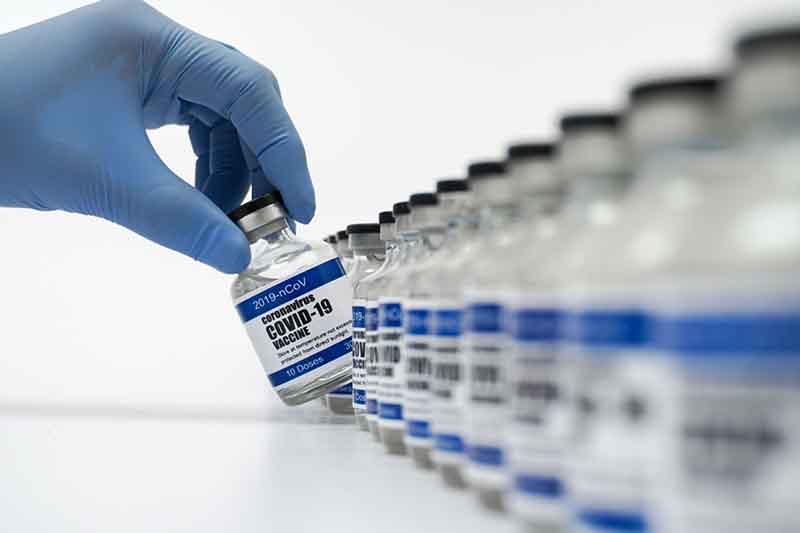The COVID 19 pandemic has affected Zimbabwe resulting in 36684 positive cases and 1514 deaths as of the 22nd of March 2021. In addition to the WHO COVID-19 infection prevention and control guidance, one of the key interventions has been vaccines.
In this article we will briefly explore how vaccines work, which vaccines have received Emergency Use Authorisation, explain the roll out and monitoring plans in place.
The COVID-19 vaccines that have been developed work in various ways. However, in summary the vaccines work by introducing to the immune system an inactive form of SARS-CoV-2 coronavirus or a part of it; thereby allowing the body to fight off future infection. Vaccine researchers and manufacturers have worked under unprecedented conditions and alongside regulatory bodies to ensure emergency use authorization of the vaccines.

The Medicines Control Authority of Zimbabwe published a guideline on submission of Covid 19 Vaccine applications for emergency use authorization (EUA) and registration. To date – 4 vaccines have been granted emergency use authorization in the country – Sinopharm and Sinovac from China, Sputnik from Russia and Covaxin from India. The EUA is valid for 12 months and the vaccines have accumulated considerable quality, safety and efficacy data obtained from Phases I, II and III clinical trials. Furthermore the authorization is valid as long as the products have a positive benefit-risk ratio in terms of safety and efficacy or when the public health emergency ends.
The national rollout and deployment vaccination plan was unveiled last month. The country received 200,000 doses of the Sinopharm vaccine on the 15th of February and a second batch of vaccines arrived on the 16th of March 2021. There are 3 key phases. The first phase targets those at risk of high exposure – frontline workers. The next phase includes medium risk personnel such as teachers and lecturers. The 3rd phase focuses on low risk personnel. The process is free and voluntary. People are considered to be fully vaccinated 2 weeks after 2nd dose for a 2 dose vaccine and 2 weeks after a single dose vaccine. Zimbabwe seeks to vaccinate over 9 million people.
As at 22nd March 2021, a cumulative total of 43,294 doses had been administered in Zimbabwe. A key element about the vaccination programme is monitoring vaccine safety by reporting Adverse Events Following Immunization (AEFI). Given the expedited development and manufacture of vaccines, long term safety monitoring is critical for generating data on the long term safety profile of the vaccines.
The MCAZ, as the National Pharmacovigilance Centre, has the mandate to monitor AEFIs by implementing pharmacovigilance plans to monitor safety and efficacy. The Ministry of Health and Child Care has also put in place a monitoring plan to allow for swift detection of adverse events following immunisation (AEFI). Those who experience any adverse events after vaccination must report to their vaccination centres or nearest healthcare practitioner, with their vaccination card and complete an AEFI form. This form is submitted to the MCAZ for causality assessment. Data generated from AEFIs can influence global decision making on the safety of the vaccines, thereby assisting the global pharmaceutical industry to come up with much safer and effective vaccines to prevent COVID-19.
The views, opinions, findings, and conclusions or recommendations expressed in this article are strictly those of the author(s).
Shingai Douglas Gwatidzo 
MPharm (UK), MPH (Sweden)
Shingai is a pharmacist and public health practitioner, currently working with the Medicines Control Authority of Zimbabwe (MCAZ) as the Projects and Public Relations Officer. In addition to regulatory affairs and quality assurance experience, he also possesses qualifications in Global Health Procurement and Supply Chain Management.
 Nyasha Bandason
Nyasha Bandason
B. Pharm (Rhodes), MPH specialising in Health Economics (UCT)
Nyasha has over 12 years experience in the pharmaceutical sector. She is currently the Director at Health Data Hub (HDH). She has served on various committees in the pharmaceutical industry. She has an extensive network in the pharmaceutical industry. And she is passionate about market access and the healthcare industry.



Recent Comments